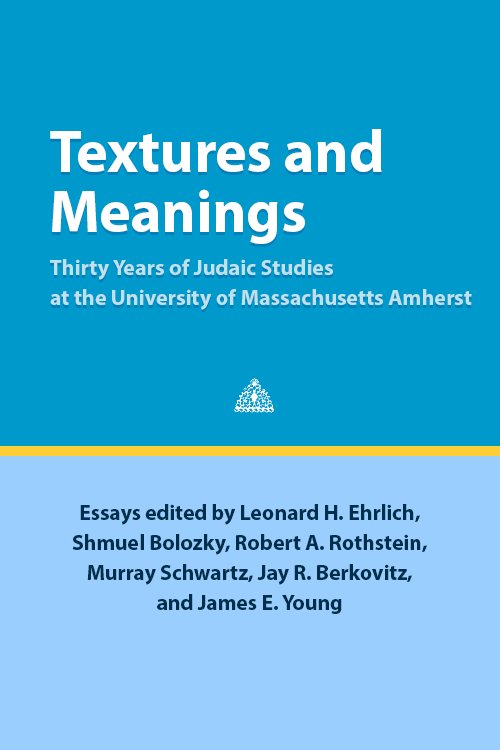Grappling with Aristotelianism in Medieval Jewish Philosophy
Ruth Birnbaum
This chapter is part of: Leonard H. Ehrlich et al. 2004. Textures and Meanings: Thirty Years of Judaic Studies at the University of Massachusetts Amherst
Download Chapter| Description |
|---|
| Ruth Birnbaum probes a different tension within Jewish interpretive history, the tension between the synthesizers of religion and philosophy and the devout believers who felt no such synthetic need. In the twelfth century work of Abraham ibn Daud, Neoplatonism gives way to Aristotelianism, which now derives God from the principle of motion, which demands a prime mover. Daud anticipates Maimonides, for whom “the truth of the rational virtues is prior and anterior to the truth of tradition.” Birnbaum explores the relations of reason, religion and revelation in Maimonides’s thought. “With the dissemination of the Guide of the Perplexed,” she writes, “the rational spirit was firmly entrenched in Judaism.” In opening Judaism to rationalist discourse, and arguing through and with Aristotle, however, the new philosophy challenged the “sacred beliefs of the devout masses who cherished their naive faith and resisted the deanthropomorphization and rationalization of the Bible.” Birnbaum then considers the critique of Maimonides by Levi ben Gerson (Gersonides), who carried the rational explication of religious questions further than his precursor while remaining Aristotelian in outlook. Man’s free will is understood to derive from his faculty of reason. Prophecy is understood as influenced by the Active Intellect. Reason distances God from direct relation to man; this is opposed to Maimonides’ faith in the power of miracles to bring God closer to man. Finally, in a reaction to these philosophic developments, Hasdai Crescas sought to refute Maimonides and to restore religious dogma and the power of love over the force of intellect. The Aristotelian moment had “passed its zenith,” and philosophy “independent of the problems of religion,” merely “flourished as an academic discipline.” |
-
Details
Published Published By Aug. 1, 2004 University of Massachusetts Amherst Libraries Citation Birnbaum R. 2004. Grappling with Aristotelianism in Medieval Jewish Philosophy. In Leonard H. Ehrlich et al. 2004. Textures and Meanings: Thirty Years of Judaic Studies at the University of Massachusetts Amherst
